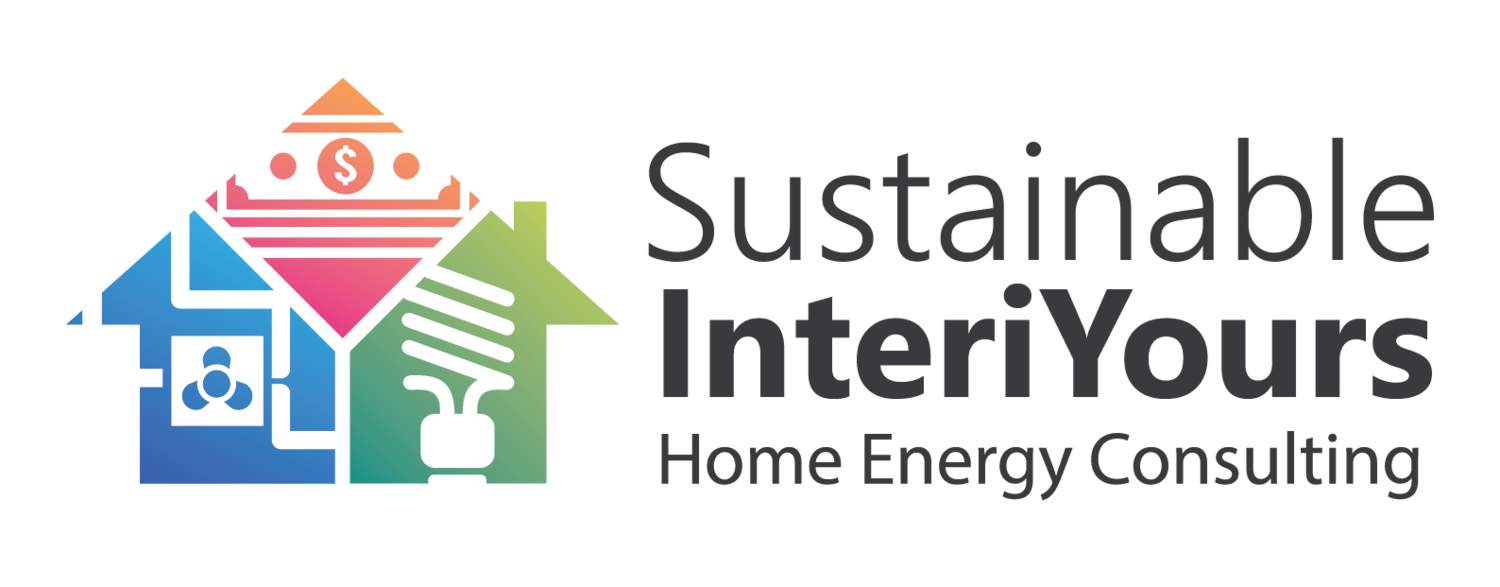10 Energy saving tips for renters
As a renter, you don't typically have much flexibility in making energy-efficient improvements in the home, apartment, condo, etc. You are usually limited to taking small steps, but the great news is that those small improvements can definitely add up to big savings! While Sustainable InteriYours' primary focus is on homeowners, we still provide consulting to the renter.
Here are ten tips to help renters save energy (and save money):
1. Turn off lights when not in use
This may seem like common sense, but it's also one of the easiest ways to save energy. Lighting can be extremely costly or very efficient, depending on what type of bulbs are in your home. Want to consume less energy? This is the easiest way. Turn it off!
2. Ensure all windows and doors are closed when heating or air conditioning are turned on
Providing heat an easy avenue to come in during the summer or allowing cold air in during the winter has a huge impact on energy consumption. Windows and doors that leak air through weather-stripping or sweeps should be repaired.
3. Replace all incandescent light bulbs with LED style light bulbs
The new bulbs will typically pay for themselves less than a year and last much longer than incandescent bulbs. There are several types of lighting to choose from, but LEDs are the best to cut costs.
4. Use a power strip and turn the power strip off when not in use
These are often referred to as vampires because even electronics in the sleep mode use electricity. You can even look for smart power strips that will turn off their outlets to keep you saving on your energy bills.
5. Practice proper window covering techniques
During summer, close your blinds to shade direct sunlight out of the home. In winter, keep curtains and drapes closed to help keep heat in the home. Using window coverings correctly allows you to get the most bang for your buck in window efficiency.
6. Use a smart or programmable thermostat
Set Air Conditioning to 76 degrees when you're home and 85 degrees when you're away. Set heating 68 degrees when you're home and 55 degrees when you're out. Smart thermostats can save you money by learning your schedule and adjusting on the fly so you can save more.
7. Set your water heater to 120 degrees
Use a thermometer to check that the water coming out of the faucet is no hotter than 120 degrees. Hot water heating is a big expense in utility costs. Many water heating systems are turned up to 140 degrees. To help limit their energy consumption, you can lower them down and still have enough hot water for your showers.
8. Use a laptop computer rather than a desktop PC
Laptop computers are designed to be more efficient and typically use less electricity-consuming peripheral devices (like monitors and external speakers). Laptops also generate less waste heat that your air conditioners have to deal with in the summertime. Efficient electronics also have less consumption than their less efficient counterparts.
9. Cook with energy efficiency in mind
Keep in mind that heating and cooling food items require energy. Thaw frozen items in the refrigerator overnight before cooking. Use a microwave for cooking rather than the oven or stovetop. Let hot foods cool at room temperature before placing them in the refrigerator.
10. Ask your landlord to replace inefficient equipment with more efficient options
If a major appliance breaks, ask for an ENERGY STAR or water-efficient version to be installed. If your local utility provides rebates for efficient appliances, let your landlord know about this win-win opportunity. While renters can't do much with the physical features of the property they rent, they still have many ways to reduce their energy bills. The most effective way to save electricity is to make energy-saving a habit. Habits typically take seven days to form, so try doing any of the above tips every day for seven days straight, and your reward will be more money in your pocket at the end of the month.
A quick list of energy-saving tips to keep your home more energy-efficient. Was this helpful? Some of these apply even if you aren't a renter. Want to schedule a consultation? Contact Us at info@siy.biz
